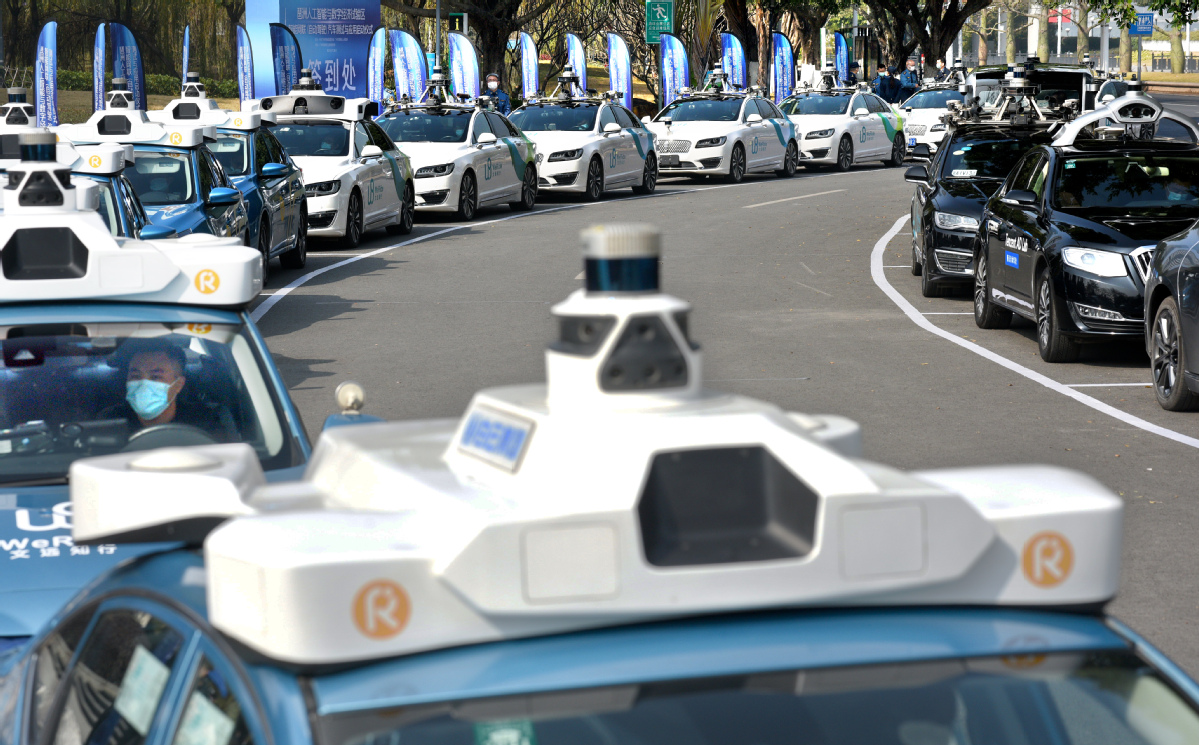WeRide to provide driverless minibus services

WeRide, a Chinese autonomous vehicle startup, is looking to provide driverless minibus services this year, company officials said on Thursday.
The Guangzhou, Guangdong province-based company, which is backed by Japan's Nissan Motors, said its robobus uses Level 4 autonomous driving technologies, indicating that the vehicles are capable of self-driving in most conditions without a human safety driver.
Han Xu, CEO of WeRide, said the robobus, which has been jointly developed with vehicle maker Yutong Group, comes without a steering wheel, throttle and brakes. It can ferry six to eight passengers at a time on open roads in cities.
"The new self-driving mode aims to solve the transportation problems of the last three to five kilometers. It will become an important city infrastructure like water, gas and electricity," said Han.
"Passenger cars with four seats and minibuses with six to eight seats will quickly become popular. The robobus market is much bigger than the shared bicycle market," he said.
The autonomous driving sector gained traction in China last year with a flurry of major deals. Pony.ai, a self-driving vehicle startup based in China and the United States, completed a new $462 million funding round last year.
China unveiled a blueprint in 2019 to boost autonomous driving in the country. The country will realize "scale production of vehicles capable of conditional autonomous driving and commercialization of high-level autonomous vehicles in certain scenarios by 2025".
The document further stated that: "Smart vehicles have become a global strategy and China has a strategic edge in developing smart cars with the complete automobile industry and evolving information technology."
In March last year, the Ministry of Industry and Information Technology launched classification standards for autonomous driving in China, which has helped expedite the country's autonomous driving industry.
To speed up commercialization, WeRide joined hands with Yutong Group to launch 10 unmanned robobuses this year and began to test them in Zhengzhou, Henan province. Similar projects were also started in Guangzhou and Nanjing, Jiangsu province.
The company plans to further expand its presence to more cities this year and has research and development centers in Silicon Valley in the United States, and Beijing and Shanghai in China. It has set up a data markup center in Anqing, Anhui province, and will expand into Nanjing, Zhengzhou and Wuhan, Hubei province this year.
"We are not blindly opening an office in a city. Each city is embedded with a strategic purpose and we will leverage local resources to accelerate the implementation of autonomous driving," Han said.
WeRide, founded in 2017, raised $310 million in its series B round of fundraising, which was led by Yutong Group. It marked the largest investment from a local original equipment manufacturer in the autonomous driving firm.
Li Ruigang, founding partner of CMC Capital Partners, said self-driving technology, like new energy vehicles, will become popular with stock-market investors. With an edge in core technologies and the superb performance of its robotaxi operations, the first of its kind in China, WeRide has made a great impact, he said.

